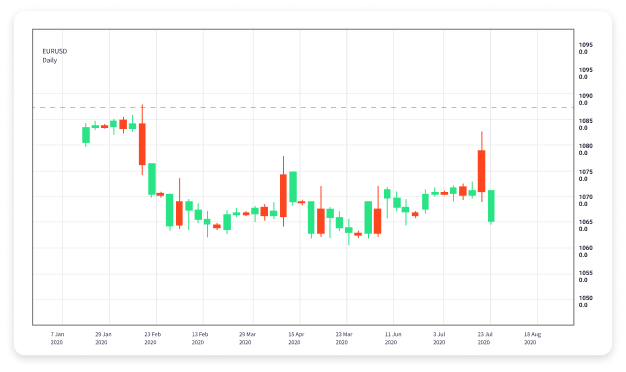Mastering Scalping in Forex Trading Strategies and Tips 1703280000

Mastering Scalping in Forex Trading: Strategies and Tips
Scalping in forex trading is an enticing strategy for those looking to make quick profits through short-term trades. By engaging in minor price movements, traders can capitalize on rapid fluctuations. If you’re interested in exploring this style of trading, consider utilizing scalp trading forex Philippine Trading Platforms to find the right tools for your needs. In this article, we will delve deep into the world of scalping, covering essential strategies, tips for success, and the psychology behind this trading technique.
Understanding Forex Scalping
Forex scalping refers to a trading strategy that involves making numerous trades over short periods, often lasting just a few seconds to a few minutes. Scalpers aim to profit from small price movements by executing frequent trades. While the profit per trade may be small, the cumulative effect can lead to significant gains, assuming traders can manage their risks effectively.
The Basics of Scalping
To succeed in scalping, it’s essential to grasp the fundamental mechanics of the forex market. Forex operates 24 hours a day, five days a week, presenting ample opportunities for traders. Scalpers typically use high leverage to maximize their profit potential, but this also increases risk. Knowledge of market activity and the ability to make quick decisions are paramount in this high-pressure environment.
Scalping Strategies
There are various strategies scalpers can employ to maximize their chances of success. Here are some popular methods:
1. Range Trading
Range trading involves identifying key support and resistance levels to capitalize on price movements within a defined range. Scalpers can buy at support levels and sell at resistance levels, leveraging the predictable nature of price actions within this framework.
2. Momentum Trading
Momentum trading relies on identifying strong trends and riding them for a short period. Scalpers watch for fast-moving price action that indicates momentum and enter trades in the direction of that trend. This strategy requires quick reflexes and a good understanding of market dynamics.
3. News Trading
News trading is based on capitalizing on market volatility resulting from economic news releases. Scalpers often time their trades around these announcements, as they can lead to rapid price movements. However, this method requires a solid understanding of economic indicators and how they affect the forex market.
Tools and Resources for Scalpers
Successful scalpers often employ various tools and resources to assist them in their trading endeavors. Below are some key tools that can help enhance your scalping performance:
1. Trading Platforms
A reliable trading platform is vital for scalping. Look for platforms that offer fast execution, low spreads, and advanced charting capabilities. Many traders prefer platforms that allow for automated trading strategies to capitalize on price movements more effectively.
2. Technical Analysis Tools

Using technical analysis tools can provide valuable insights into market trends and price movements. Indicators such as moving averages, Bollinger Bands, and Relative Strength Index (RSI) can help scalpers identify entry and exit points.
3. Economic Calendars
Staying informed about upcoming economic events can greatly assist scalpers. Economic calendars provide information about scheduled news releases and their potential impact on the forex market, allowing traders to plan their strategies accordingly.
The Psychology of Scalping
While mastering technical skills and strategies is crucial, the psychology of trading cannot be overlooked. Scalpers face a unique set of psychological challenges, including:
1. Discipline
Scalpers need to maintain strict discipline to follow their trading plans. The fast-paced nature of scalping can lead to emotional decision-making, which may result in losses. Sticking to a well-defined strategy is key to long-term success.
2. Managing Emotions
Fear and greed can profoundly impact a trader’s performance. Scalpers must learn to manage these emotions, keeping a level head even during high-pressure trading situations. Developing emotional resilience through practice and experience is essential.
Risk Management in Scalping
Effective risk management is crucial to preserving capital and ensuring long-term profitability in scalping. Here are some risk management tips for traders:
1. Set Stop Loss Orders
Always use stop-loss orders to limit potential losses. Scalping involves quick trades, and having predefined exit points can save traders from significant setbacks.
2. Limit Capital Exposure
Scalpers should avoid risking too much capital on a single trade. It’s best to risk only a small percentage of the trading account on each trade, allowing traders to withstand losing streaks.
3. Use Proper Lot Sizes
Choosing the right lot size is vital for managing risk. Scalpers should adjust their position sizes based on their account balance and risk tolerance.
Conclusion
Scalping in forex trading offers an exciting opportunity for traders seeking quick profits through short-term strategies. By implementing effective strategies, using the right tools, and maintaining a disciplined approach, traders can enhance their chances of success in this competitive environment. Continuous learning and adapting to market conditions are essential for achieving long-term profitability. Remember, while scalping can be lucrative, it also requires acute awareness of risks and personal limitations. Always practice prudent risk management to safeguard your trading journey.
